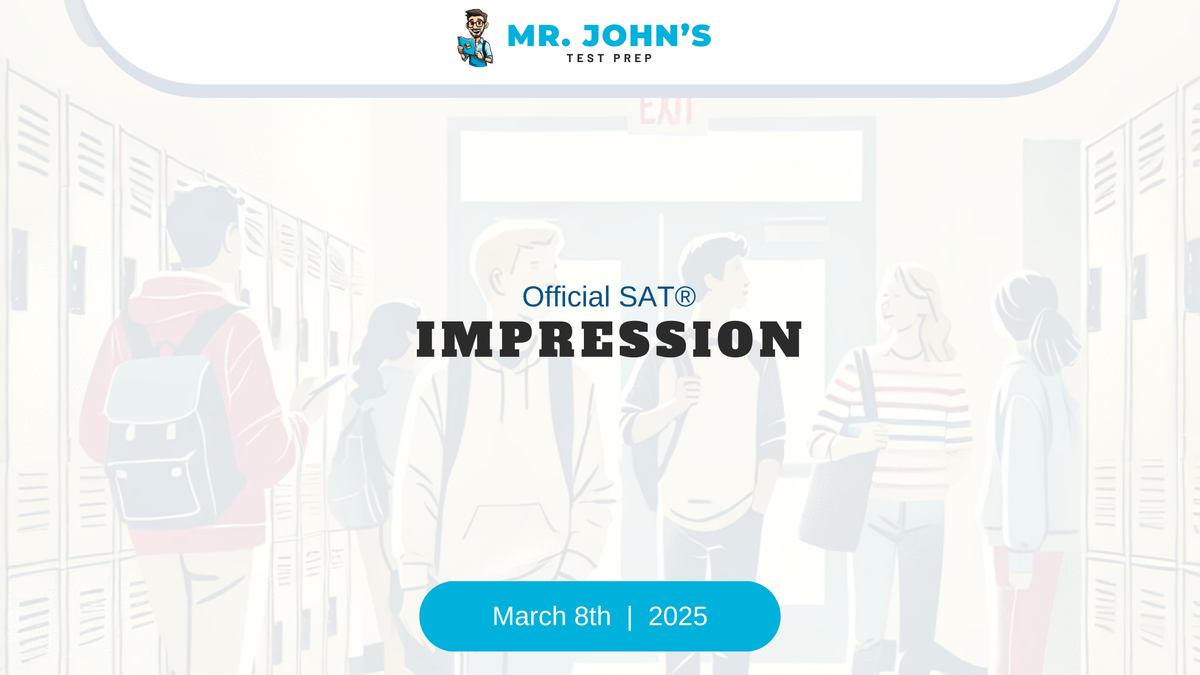Initial Impressions from the March 2025 SAT

It's been less than an hour since the March SAT ended for most students here in sunny Southwest Florida. Here are my initial thoughts and reactions to what I saw.
A More Balanced Test?
My general take is that the test was more balanced from start to finish in each section, yet weighted towards tougher questions.
I felt that the first Reading and Writing module was similar to the November test. It was less of a "breeze" like the December test and required some extra thought on several of the questions. That said, seeing a harder first module isn't out of the norm. It just goes to show that the College Board may be experimenting with the level of difficulty found in the first modules.
The first Math module felt a bit harder than the December test, also. I got the impression that medium-hard questions were more spread out than the expected progression from easy to hard. This, of course, could have just been my perspective.

Specific Things I Noticed
While I can't discuss exact specifics, I noticed at least one thing that gave me pause for concern.
Most of my students know my SPOTR method for Subject-Verb Agreement questions. This acronym serves as a reminder to search for the subject and prepositional phrases and omit any unnecessary prepositional or supplementary phrases that distract us from the true subject of the sentence or clause. I noticed a trick in this test that muddled the lines between what skill was being tested: subject-verb or verb forms.
Let me explain with an imaginary example text using Tiger Woods:
Tiger Woods was one of the greatest golfers who ever played the game. Through his disciplined fitness regimen, weight training, and flexibility routines, he changed the dynamic of golf to a more "athletic" game. For that reason, golfers in the future who aspire to reach his level of greatness _________ his influence on their training more salient than golfers before his time.
A. have found
B. find
C. are finding
D. will find
If a student were to think this was a typical subject-verb agreement style of question, she might eliminate the prepositional phrase after "golfers" and simplify the sentence to "Golfers find his influence more important...." That quick tendency to omit prepositional phrases could lead to a premature elimination of "in the future" after the subject "golfers" is identified.
In this case, "in the future" provides more information for choosing the tense of the verb, indicating more of a verb form skill question than a subject-verb agreement question.
Final Thoughts
There was nothing on the test that was outside of the normal patterns that the College Board uses and that we train to exploit with our techniques. While the test felt heavy and wordy in the verbal section, particularly Textual Command of Evidence and Inference questions, it still felt typical.
I hope those of you who took the test stuck to your process and did well. Now, we will see how the curve turns out.
Let me know your thoughts on the exam in the comments below, and enjoy your weekend!





